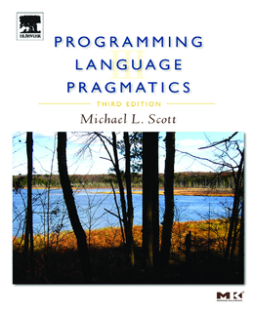
Additional Information
Book Details
Abstract
Programming Language Pragmatics, Third Edition, is the most comprehensive programming language book available today. Taking the perspective that language design and implementation are tightly interconnected and that neither can be fully understood in isolation, this critically acclaimed and bestselling book has been thoroughly updated to cover the most recent developments in programming language design, inclouding Java 6 and 7, C++0X, C# 3.0, F#, Fortran 2003 and 2008, Ada 2005, and Scheme R6RS.
A new chapter on run-time program management covers virtual machines, managed code, just-in-time and dynamic compilation, reflection, binary translation and rewriting, mobile code, sandboxing, and debugging and program analysis tools. Over 800 numbered examples are provided to help the reader quickly cross-reference and access content.
This text is designed for undergraduate Computer Science students, programmers, and systems and software engineers.
- Classic programming foundations text now updated to familiarize students with the languages they are most likely to encounter in the workforce, including including Java 7, C++, C# 3.0, F#, Fortran 2008, Ada 2005, Scheme R6RS, and Perl 6.
- New and expanded coverage of concurrency and run-time systems ensures students and professionals understand the most important advances driving software today.
- Includes over 800 numbered examples to help the reader quickly cross-reference and access content.
"Michael Scott's book could have been entitled: Why Programming Languages Work. It takes a fresh look at programming languages by bringing together ideas and techniques usually covered in disparate language design, compiler, computer architecture, and operating system courses. Its comprehensive and integrated presentation of language design and implementation illustrates and explains admirably the many deep and profitable connections among these fields."
?Jim Larus, Microsoft Research
"This book is the best and most complete on this topic that I've seen."
?Klaus Ostermann, Darmstadt University of Technology
